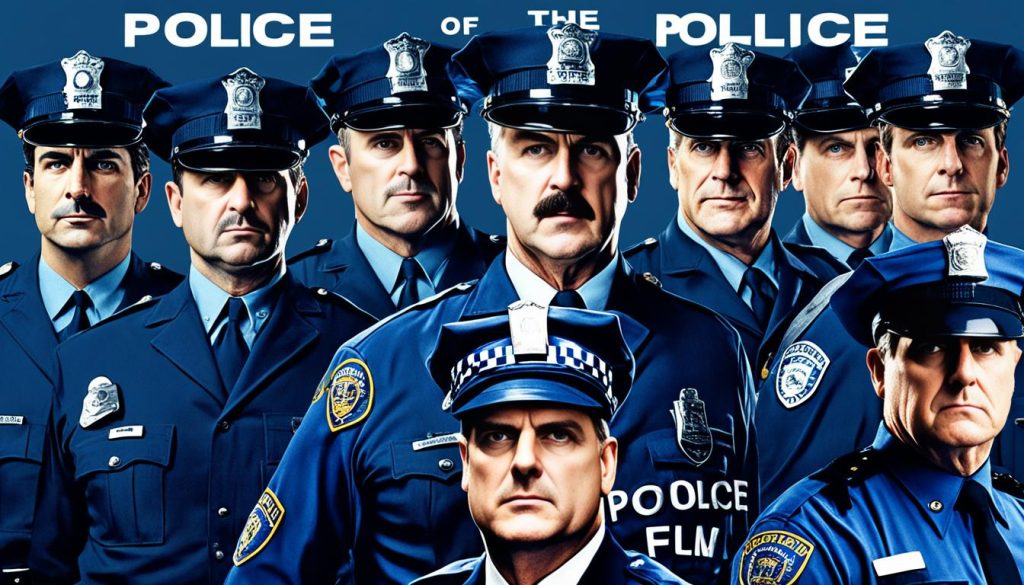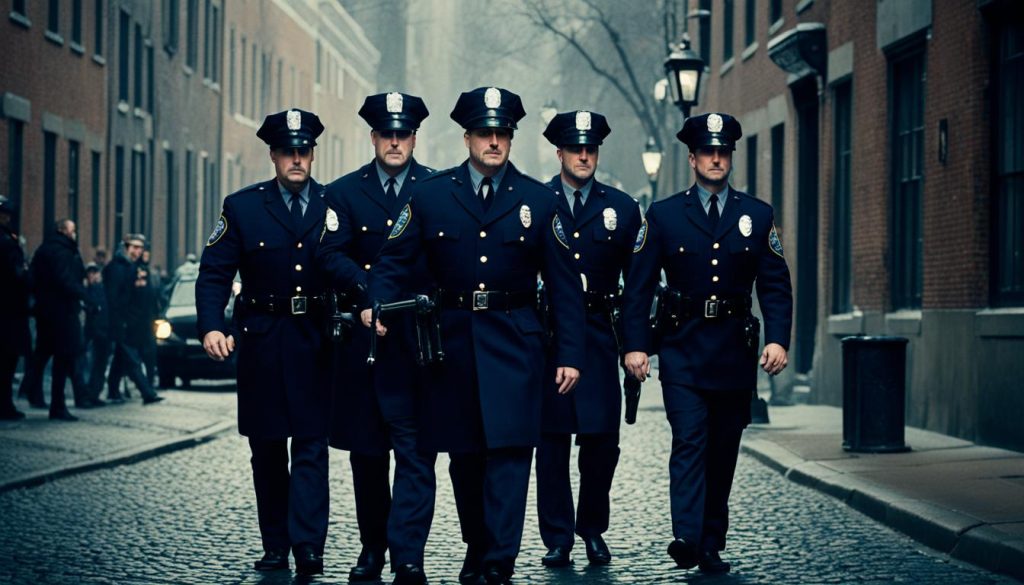Hey there, eh! Today I’m diving into the fascinating world of law enforcement terminology to answer a burning question: why are police officers called cops? It’s a term we hear all the time, but have you ever stopped to wonder where it came from? Well, grab your toque and let’s find out!
The term “cop” has a long and interesting history. Although its exact origin is unclear, several theories have been proposed. One idea suggests that “cop” is short for “constable on patrol.” However, this theory is unlikely as “constable” is not a common title for law enforcement officers in the United States. Another theory posits that “cop” comes from “copper,” a slang term for police officers due to their shiny copper badges and buttons. However, there is limited evidence to support this theory.
The most widely accepted origin of the term “cop” is rooted in the verb meaning “to take or seize.” In the mid-19th century, the phrase “to cop” began to be used to mean “to arrest,” and soon after, police officers themselves started being referred to as “coppers” or “cops.” Over time, the term has become firmly ingrained in law enforcement jargon and is still used today, eh!
Key Takeaways:
- The term “cop” is a nickname commonly used for police officers in the United States.
- The exact origin of the term is uncertain, but it likely developed from the verb meaning “to take or seize.”
- Other theories, such as “constable on patrol” and “copper,” have been proposed but lack strong evidence.
- “Cop” has become ingrained in law enforcement terminology and is still used today.
- Stay tuned to discover more fascinating police officer nicknames and their origins!
The Fuzz and 5-0: How They Became Popular
In addition to “cops,” there are several other nicknames for police officers in Canada. One popular nickname is “the fuzz,” which originated in the 1960s and 70s. The exact origin of this term is uncertain, but there are several theories.
- Some believe it may come from the sound of static over police radios.
- Others suggest it could be related to the short and fuzzy haircuts that new officers often have.
Another nickname for police is “5-0,” which became popular after the television show Hawaii Five-O aired from 1968 to 1980. The show depicted the Hawaiian police force as “5-0” based on Hawaii being the fiftieth state to join the union, although this designation is inaccurate in real life.
Other nicknames for police officers include “the heat,” which may refer to the red flashing lights on police cars or the applied pressure during interrogations, and “boys in blue,” which originated from the classic navy blue uniforms worn by police officers.

Older Nicknames for Police in the US
Throughout American history, there have been numerous nicknames for police officers that have fallen out of fashion. These unique monikers reflect the evolving cultural landscape and the changing perceptions of law enforcement. Let’s take a closer look at some of these older nicknames.
Gumshoe
One such nickname is “gumshoe,” which was often used to refer to detectives who had to work stealthily to solve crimes. The term “gumshoe” originated from the use of gum rubber on the bottoms of soft-soled shoes in the 19th century, which made the wearer’s steps very quiet. This enabled detectives to move about silently during their investigations, hence the name “gumshoe.”
Smokey
Another nickname that was formerly used for law enforcement officers is “Smokey.” This nickname was inspired by the hats worn by police officers, which closely resembled those worn by Smokey the Bear, a symbol used by the US Forest Service. The nickname gained popularity after the release of the film “Smokey and the Bandit” in 1977, further solidifying its association with law enforcement.
The Man
“The man” is a more general term that originated from the free-spirited movement of the 1960s and 70s. It referred to any authority figure, including those related to the government. While not specific to police officers, “the man” was often used to refer to those in positions of power over the public.
The evolution of police officer nicknames reflects the cultural shifts and historical contexts in which they originated. While some of these older nicknames may have fallen out of use, they offer a fascinating glimpse into the lexicon and perception of law enforcement in the past.

| Nickname | Origin |
|---|---|
| Gumshoe | The use of gum rubber on soft-soled shoes for stealthiness |
| Smokey | Resemblance to Smokey the Bear’s hat |
| The Man | Originated from the free-spirited movement of the 1960s and 70s |
Nicknames for Police Around the World
Police officers around the world have been given various interesting nicknames. In the United Kingdom, police officers are often referred to as “bobbies” or “peelers,” which originated from the founder of modern policing, Sir Robert Peel. In Canada, police officers are commonly called “mounties” due to the Royal Canadian Mounted Police, even though they no longer routinely patrol on horseback. In Vietnam, traffic police officers are sometimes referred to as “Pikachu” due to their yellow uniforms, which resemble the popular cartoon character from the Pokémon franchise.
Garmont’s T8 LE 2.0 Boot
Garmont understands the demanding and vital work that police officers do in Canada, which is why they have designed the T8 LE 2.0 boot specifically for their needs. This lightweight boot provides all-day comfort and maneuverability, making it suitable for station duty, patrolling, and emergency scenes. Made with high-quality materials, the Garmont T8 LE 2.0 boot is built to withstand the challenges faced by law enforcement officers on a daily basis.
The T8 LE 2.0 boot features polishable full-grain leather, ensuring a professional appearance at all times. With a side-zipper design, these boots allow for quick and easy on-and-off, saving valuable time when responding to emergencies or changing duty assignments. The closed eyelets ensure a secure fit and prevent dirt or debris from entering the boot.
One of the key features of the Garmont T8 LE 2.0 boot is the Velcro strap over the zipper, providing snag-proof performance in any situation. This added security feature ensures that the boot remains intact and functional, even in high-intensity scenarios.
With the Garmont T8 LE 2.0 boot, police officers in Canada can feel confident that their feet are protected and supported throughout their demanding shifts. These boots are designed to meet the unique requirements of law enforcement personnel, offering both durability and comfort. Invest in the Garmont T8 LE 2.0 boot for superior performance in police officer footwear.
Conclusion
The term “cop” has become a widely used nickname for police officers in the United States. While its exact origin is uncertain, it likely stems from the verb “to take or seize.” Over time, “cop” evolved to refer to both the act of arresting and the individuals performing the arrests. Alongside “cop,” there exist other popular nicknames for police officers, such as “the fuzz,” “5-0,” “the heat,” and “boys in blue,” each with intriguing origins linked to law enforcement or cultural references. Regardless of the nickname used, police officers play a crucial role in upholding law and order in society.